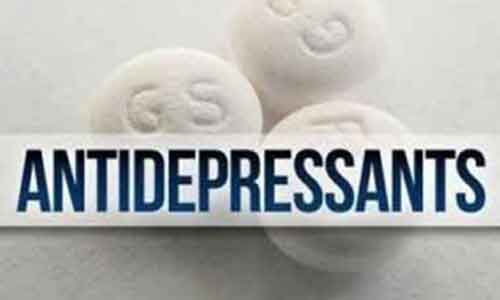- Home
- Medical news & Guidelines
- Anesthesiology
- Cardiology and CTVS
- Critical Care
- Dentistry
- Dermatology
- Diabetes and Endocrinology
- ENT
- Gastroenterology
- Medicine
- Nephrology
- Neurology
- Obstretics-Gynaecology
- Oncology
- Ophthalmology
- Orthopaedics
- Pediatrics-Neonatology
- Psychiatry
- Pulmonology
- Radiology
- Surgery
- Urology
- Laboratory Medicine
- Diet
- Nursing
- Paramedical
- Physiotherapy
- Health news
- Fact Check
- Bone Health Fact Check
- Brain Health Fact Check
- Cancer Related Fact Check
- Child Care Fact Check
- Dental and oral health fact check
- Diabetes and metabolic health fact check
- Diet and Nutrition Fact Check
- Eye and ENT Care Fact Check
- Fitness fact check
- Gut health fact check
- Heart health fact check
- Kidney health fact check
- Medical education fact check
- Men's health fact check
- Respiratory fact check
- Skin and hair care fact check
- Vaccine and Immunization fact check
- Women's health fact check
- AYUSH
- State News
- Andaman and Nicobar Islands
- Andhra Pradesh
- Arunachal Pradesh
- Assam
- Bihar
- Chandigarh
- Chattisgarh
- Dadra and Nagar Haveli
- Daman and Diu
- Delhi
- Goa
- Gujarat
- Haryana
- Himachal Pradesh
- Jammu & Kashmir
- Jharkhand
- Karnataka
- Kerala
- Ladakh
- Lakshadweep
- Madhya Pradesh
- Maharashtra
- Manipur
- Meghalaya
- Mizoram
- Nagaland
- Odisha
- Puducherry
- Punjab
- Rajasthan
- Sikkim
- Tamil Nadu
- Telangana
- Tripura
- Uttar Pradesh
- Uttrakhand
- West Bengal
- Medical Education
- Industry
Intracranial Hemorrhage Linked to Usage of Antidepressants: JAMA study

Researchers from a recent study have reported that the use of selective serotonin reuptake inhibitors and more generally of antidepressants with strong inhibition of serotonin reuptake are associated with an increased risk for spontaneous intracranial hemorrhage.
The study is published in JAMA Neurology Network.
Selective serotonin reuptake inhibitors (SSRIs) may increase the risk for spontaneous intracranial hemorrhage (ICH), an effect that is in theory linked to the strength of inhibition of serotonin reuptake of an antidepressant. However, whether antidepressants that are strong inhibitors of serotonin reuptake actually increase the risk for ICH and the effect of concomitant use of antithrombotics are unknown.
Therefore, Christel Renoux and colleagues from the Centre for Clinical Epidemiology, Lady Davis Institute for Medical Research, Jewish General Hospital, Montréal, Québec, Canada conducted this study to assess the risk for ICH associated with the use of SSRIs compared with tricyclic antidepressants (TCAs) among new users of antidepressants and according to the relative affinity of the antidepressant for the serotonin transporter and to assess whether concomitant use of antithrombotics modifies this risk.
This population-based cohort study included new users of antidepressants 18 years or older. More than 650 general practices in the United Kingdom contributing to the Clinical Practice Research Datalink enrolled patients with use of a nested case-control approach, each case of a first ICH identified during follow-up was matched with as many as 30 control individuals by age, sex, calendar time, and duration of follow-up. Follow-up was thereafter completed.
The following findings were highlighted-
a. Among a cohort of 1 363 990 incident users of antidepressants (36.8% male; 63.2% female; mean [SD] age, 47.9 [18.5] years), 3036 cases of ICH were identified during follow-up and matched to 89 702 controls.
b. Current SSRI use was associated with an increased risk for ICH (RR, 1.17; 95% CI, 1.02-1.35) relative to TCAs, highest during the first 30 days of use (RR, 1.44; 95% CI, 1.04-1.99), and translating in very few additional events.
c. Similarly, the risk was increased by 25% with strong inhibitors (RR, 1.25; 95% CI, 1.01-1.54) and highest during the first 30 days of use (RR, 1.68; 95% CI, 0.90-3.12).
d. Concomitant use of anticoagulants may increase the risk substantially (RR, 1.73; 95% CI, 0.89-3.39).
Hence, it was concluded that "The use of SSRIs and more generally of antidepressants with strong inhibition of serotonin reuptake are associated with an increased risk for ICH, particularly in the first 30 days of use and when used concomitantly with oral anticoagulants."
Dr. Nandita Mohan is a practicing pediatric dentist with more than 5 years of clinical work experience. Along with this, she is equally interested in keeping herself up to date about the latest developments in the field of medicine and dentistry which is the driving force for her to be in association with Medical Dialogues. She also has her name attached with many publications; both national and international. She has pursued her BDS from Rajiv Gandhi University of Health Sciences, Bangalore and later went to enter her dream specialty (MDS) in the Department of Pedodontics and Preventive Dentistry from Pt. B.D. Sharma University of Health Sciences. Through all the years of experience, her core interest in learning something new has never stopped. She can be contacted at editorial@medicaldialogues.in. Contact no. 011-43720751
Dr Kamal Kant Kohli-MBBS, DTCD- a chest specialist with more than 30 years of practice and a flair for writing clinical articles, Dr Kamal Kant Kohli joined Medical Dialogues as a Chief Editor of Medical News. Besides writing articles, as an editor, he proofreads and verifies all the medical content published on Medical Dialogues including those coming from journals, studies,medical conferences,guidelines etc. Email: drkohli@medicaldialogues.in. Contact no. 011-43720751


